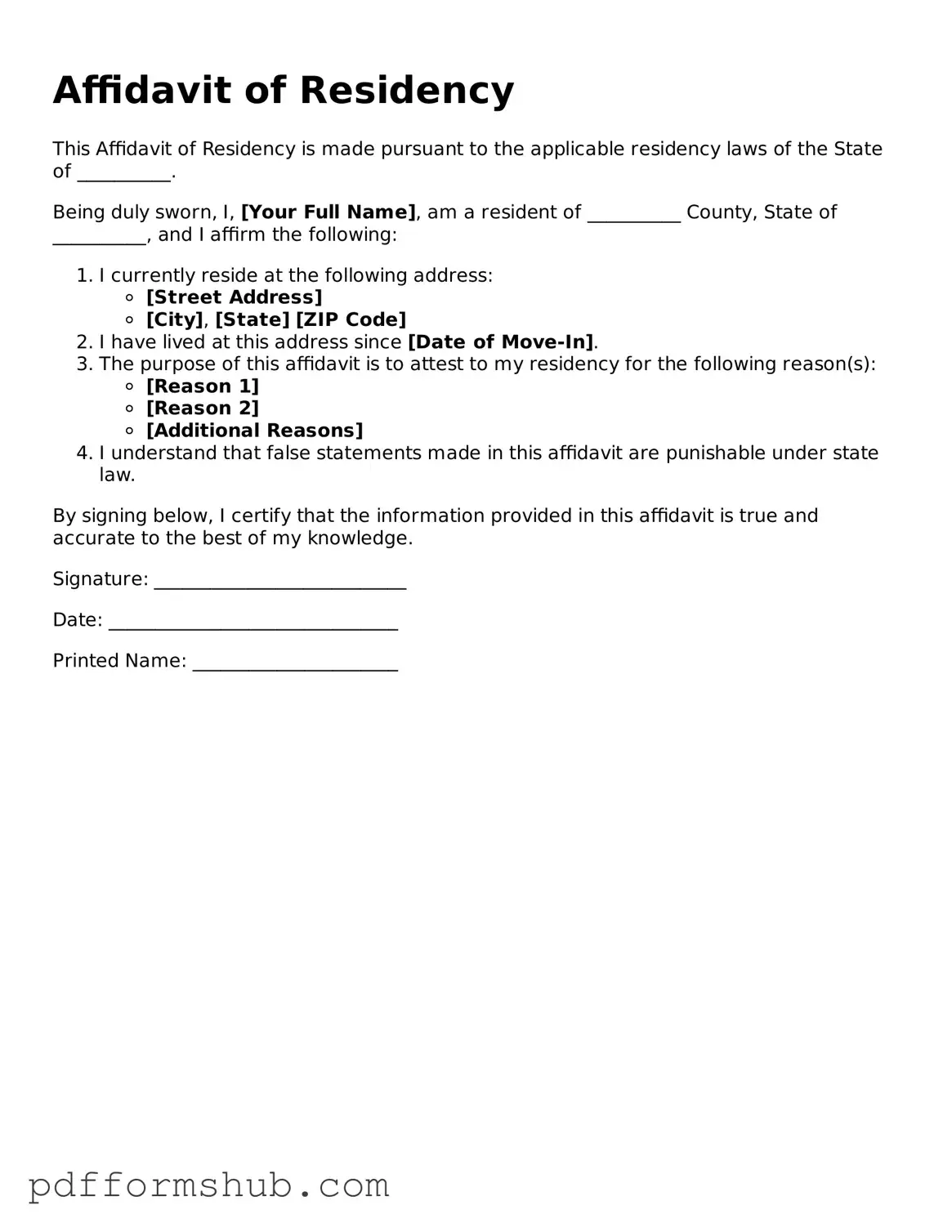Valid Affidavit of Residency Form
The Affidavit of Residency is a legal document that individuals use to confirm their residence at a specific address. This form serves as a declaration, often required for various legal or administrative purposes, such as enrolling in school or applying for government benefits. To ensure accurate processing, it is essential to fill out the form correctly; click the button below to get started.
Customize Form

Valid Affidavit of Residency Form
Customize Form

Customize Form
or
Free PDF Form
Short deadline? Complete this form now
Complete Affidavit of Residency online without printing hassles.